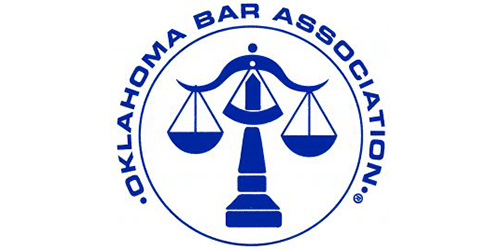

We represent those who have been injured in accidents on the job, and deal with claims for medical expenses and lost wages against private organizations, state and local government, and their insurers. We address disputes regarding whether your injury qualifies as “on the job,” fraudulent disqualification, or subrogation to other insurers and appeals. When employees are wounded or killed because a company acted without proper consideration for their well-being or safety, we make it our mission to protect those employees.
The FAQs below provide some of your basic rights and responsibilities if you or a family member is the victim of an injury covered by workers’ compensation laws. Each accident is distinctive, and these sample questions and answers do not replace the expertise of a legal professional, nor should they be considered a comprehensive explanation of your rights.
Let's Talk.
Don’t hesitate. No recovery, no fee.
The Oklahoma Workers’ Compensation Act is a state law that sanctions medical care, permanent disability benefits, weekly income benefits, and rehabilitation if you suffer a job-related injury. Your employer’s insurance company usually pays these benefits.
Almost every type of employment, with very few exceptions, is covered by workers’ compensation. If you have any doubts about whether you have coverage, you should confer with a legal professional.
No. From the moment you begin your employment, you are covered—there is no waiting period.
Your employer covers almost any type of physical harm or illness caused by your work. This includes broken bones, all types of sprains and muscle strains, loss of hearing, lung injuries, heart attacks, strokes, hernia, disfiguring scars, and injuries cause by repeated strain.
No. Injuries are frequently caused by repetitive daily work, known as “repeated trauma” injuries. Many other types of covered injuries are caused by continued exposure to harmful substances or working conditions such as fumes, chemicals, or loud noises.
Recovering your benefits is possible even when it is an old injury, or a re-injury/aggravation of an earlier injury (even if the previous injury was not work-related).
If you are killed, your spouse and minor children are entitled to both a lump-sum payment and weekly compensation benefits. Your other family members also may be entitled to financial compensation.
A worker who has been exposed to loud sounds in the workplace is entitled to compensation for partial or total loss of hearing, including the cost of a hearing aid, if necessary.
An employee who has lung damage as a result of exposure to harmful substances associated with the workplace—including chemicals, fumes, and dust—may be entitled to medical care, disability benefits, and rehabilitation.
A heart attack or stroke triggered by the physical or psychological stress of employment is commonly covered, even if you had a prior illness unrelated to your work.
All practical and essential medical charges related to your injury are to be paid by your employer’s insurance company, including ambulance charges, hospital stay, physicians, X-rays, physical therapy, medical equipment, and medications. You do not pay any of the medical costs, and there is no copay as long as the care is reasonable, medically necessary, and connected to your injury.
If your employer participates in a Certified Workplace Medical Plan (CWMP), you must select one of the physicians provided by that plan or a family physician selected at the time you were hired. If your employer does not participate in a CWMP, you may choose your own physician.
Your right to medical care in the future can be protected if your claim is handled properly. Do not enter into any agreement that requires you to give up the valuable right to medical care in the future. Before signing a release or entering a final settlement, seek the advice of an attorney experienced in workers’ compensation law.
You must report your injury to your employer within 30 days or receive medical care from a physician during that 30-day period, as required by law. However, the sooner you notify your employer, the better. If you do not report your injury within 30 days, you still may be entitled to some benefits. If your employer or its insurer denies providing benefits because of your delay, you need legal expertise immediately.
If three calendar days pass in which you cannot work due to a work-related injury, you are entitled to weekly income benefits. These begin on the fourth day of disability and normally continue until you are no longer disabled.
Your benefits are based on the average weekly wage earned at the time of your injury. You should collect about 70% of such wages, not to exceed a limit determined by the law. If you are receiving less than 70%, it may be beneficial to consult with an attorney to make sure you are getting what you deserve.
You may be entitled to permanent disability benefits when you have obtained sufficient medical care and are released by your physician. Permanent disability is a very valuable benefit, so it’s important to get the advice of a lawyer experienced in workers’ compensation law. It may be critical in properly establishing the value of your permanent injury
In case of serious injury, workers’ compensation laws provide for rehabilitation. You may be entitled to educational assistance, training, or other vocational skills if your injury prevents you from returning to work. There also may be benefits requiring assistance in obtaining other employment.
You are not required to have an attorney, but you may not want to deal with an experienced insurance adjuster or company lawyer on your own. Both the adjusters and the company lawyer are interested in protecting the insurance company’s interests and bottom line. If you want to be sure that you receive each and every benefit provided by law, you will need the help of an experienced attorney, whose goal is to recover those benefits. Legal fees will be paid only if you recover the benefits. By law, your attorney earns 20% of fees for permanent disability benefits collected and a 10% fee for temporary total disability benefits collected (there is no weekly fee when weekly benefits are paid willingly). You are not required to pay your attorney fees for securing payment of prescriptions or medical bills.
Your attorney will need to obtain copies of the medical reports relating to your injury, a written statement from a doctor describing the nature and gravity of your injury (you must pay doctors for this information), and possibly incur other necessary expenses in preparing your case.
The client is responsible for the payment of expenses under Oklahoma law. Your attorney is allowed to cover your costs at the beginning and deduct payment from your collected benefits.
A court appearance is not always necessary—many cases are resolved without one. However, if the employer or insurance company ignores, refuses or delays your benefits, a trial may be necessary. You will be protected by having an experienced lawyer with you at the trial.
You should file your claim as soon as possible, so you can get your benefits quickly. If you do not file your claim with Workers’ Compensation Court within two years, you generally lose your rights to workers’ compensation. This is a very technical and intricate area of the law—even if you feel you have failed to file your claim within the correct timeframe, you should consult with an experienced legal professional to be certain.
No, this is forbidden by Oklahoma law. The law also protects employees who might testify on your behalf. If your employer violates this law, they can be sued. If you are permanently disabled, the law requires your employer to allow you to return to work with reasonable accommodations made for your injury. Your employer cannot simply refuse to allow you to return.
There is no charge to discuss your case with one of the attorneys at Smolen Law. You will not pay until we collect for you. For your injury, we will actively pursue the greatest permissible return the law allows.
Smolen Law's mission is to provide exceptional legal services with integrity, professionalism, and respect.
Choose the Oklahoma law firm that gets results: Smolen Law.






There's only one firm known as the "Alpha Firm," and that's Smolen Law in Tulsa, Oklahoma. With over 70 years of combined legal experience, our goal is to exceed clients' expectations and treat them with the professionalism, honesty, and respect they deserve every step of the way.
Local: 918-777-4LAW (4529)
Toll: 833-777-4LAW (4529)
Mon to Thurs: 8:30 AM - 5:00 PM
Fri: 8:30 AM - 4:00 PM
The information found on this website is for general informational, educational, and advertising purposes only. Any information found on this website does not constitute legal advice or a solicitation of clients, nor does it create an attorney-client relationship between the reader and Smolen Law, PLLC.
Any case result information provided on any portion of this website should not be understood as a promise of any particular result in a future case. Because the results obtained in specific cases depend on a variety of factors unique to each case, past case results do not guarantee or predict a similar result in future cases undertaken by Smolen Law, PLLC.
Professional legal counsel should be sought for specific advice relevant to your circumstances. Do not send any confidential information to our firm until an attorney-client relationship has been established through direct communication with an attorney at Smolen Law, PLLC, and subsequent mutual written agreement that our representation of you would be appropriate and acceptable.